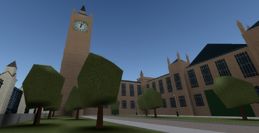Parliament: Difference between revisions
Jump to navigation
Jump to search
No edit summary |
No edit summary |
||
| Line 14: | Line 14: | ||
| leader2_type = [[Lord Speaker]] | | leader2_type = [[Lord Speaker]] | ||
| leader2 = [[harrison_nw|The Earl harrison_nw of Liverpool]] | | leader2 = [[harrison_nw|The Earl harrison_nw of Liverpool]] | ||
| election2 = | | election2 = 4 February 2023 | ||
| leader3_type = [[Speaker of the House of Commons|Commons Speaker]] | | leader3_type = [[Speaker of the House of Commons|Commons Speaker]] | ||
| leader3 = [[JamesAcheson]] | | leader3 = [[JamesAcheson]] | ||
Revision as of 17:15, 14 May 2023
Parliament of the United Kingdom of Great Britain and Northern Ireland | |
|---|---|
 | |
| Type | |
| Type | Bicameral |
| Houses | House of Lords House of Commons |
| Sovereign | Monarch of the United Kingdom |
| Leadership | |
Robert since 16 October 2022 | |
The Earl harrison_nw of Liverpool since 4 February 2023 | |
JamesAcheson since 21 April 2023 | |
| Structure | |
| Seats | House of Lords: 25 House of Commons: 50 |
 | |
House of Lords political groups |
|
 | |
House of Commons political groups |
|
| Elections | |
House of Commons last election | 11 March 2023 |
House of Commons next election | On or before 23 July 2023 |
| Meeting place | |
 | |
| Palace of Westminster London United Kingdom | |
Parliament is the supreme legislative body of the United Kingdom. It meets at the Palace of Westminster, London. It alone possesses legislative supremacy and thereby ultimate power over all other political bodies in the UK. Parliament is bicameral but has three parts, consisting of the sovereign, the House of Lords and the House of Commons. In theory, the Crown normally acts on the advice of the prime minister, and the powers of the House of Lords are limited to only delaying legislation; thus power is de facto vested in the House of Commons.